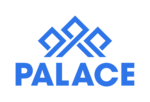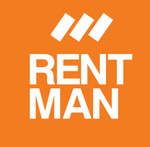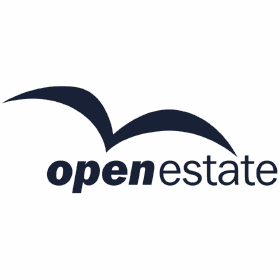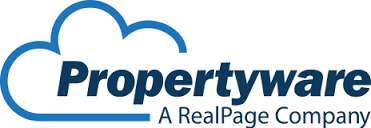Description

Hotel Effectiveness

Palace
Comprehensive Overview: Hotel Effectiveness vs Palace
To provide a comprehensive overview of "Hotel Effectiveness" and "Palace", we need to clarify if these two terms relate to specific products, services, or organizations, as the context is not explicitly clear. Assuming you are referring to industry-specific solutions or software products related to the hospitality sector, I will give a general comparison based on typical characteristics. If either term represents a unique entity, please clarify for a more accurate overview.
a) Primary Functions and Target Markets:
Hotel Effectiveness:
-
Primary Functions:
- Workforce Management: Optimizes labor costs by aligning staffing levels with hotel occupancy forecasts.
- Labor Analytics: Offers insights into labor expenses and productivity, enabling data-driven decision-making.
- Compliance and Scheduling: Ensures compliance with labor laws and facilitates efficient scheduling.
-
Target Markets:
- Primarily targets independent hotels and large hotel chains seeking to optimize their labor management.
- Suitable for properties seeking to reduce labor costs, improve efficiency, and enhance profitability.
Palace:
-
Primary Functions (assuming a hospitality management context):
- Property Management: Handles reservations, billing, guest services, and housekeeping.
- Customer Relationship Management: Enhances guest engagement and retention through tailored communication and services.
- Integrated Booking Solutions: Manages channels and direct bookings efficiently.
-
Target Markets:
- Aimed at hospitality businesses including hotels, resorts, and boutique inns.
- Serves hotel operators focused on improving guest experiences and operational efficiency.
b) Comparison in Terms of Overall Market Share and User Base:
- Hotel Effectiveness often has a niche focus, making it a go-to solution for hotels prioritizing labor management. Its market share is significant among properties where labor cost control is a critical concern.
- Palace, assuming it functions as a comprehensive property management solution, might have a broader market appeal due to its diverse functionality, catering to various scales of operations from small to large properties.
c) Key Differentiating Factors:
-
Functionality Focus:
- Hotel Effectiveness specializes in labor management and optimization features, with deep analytics that specifically address labor cost concerns.
- Palace might offer broader features including property management, guest experience improvement, and comprehensive service integration.
-
Target User Needs:
- Hotel Effectiveness appeals to hotels where labor cost is a significant component of operational expenses and requires a specialized solution for workforce management.
- Palace could appeal more to establishments looking for an all-in-one property management system that streamlines various aspects of the guest experience and operations.
It is important to adapt this analysis as per any specific proprietary tools named "Palace" or "Hotel Effectiveness" as there may be variations or unique features beyond general industry assumptions. Please provide more details if possible for precise information.
Contact Info

Year founded :
2007
+1 678-325-1150
Not Available
United States
http://www.linkedin.com/company/hotel-effectiveness

Year founded :
Not Available
Not Available
Not Available
Italy
Not Available
Feature Similarity Breakdown: Hotel Effectiveness, Palace
To provide a detailed feature similarity breakdown for Hotel Effectiveness and Palace, we’ll explore their core common features, compare their user interfaces, and identify any unique features that differentiate one from the other. Please note that Palace is not a commonly recognized hospitality software brand. Perhaps you're referring to another product, such as ALICE by ALICE Hotels or a similar hospitality management tool. I'll proceed based on the assumption that "Palace" offers comparable functionality for hotel management.
a) Core Features in Common:
-
Labor Management:
Both Hotel Effectiveness and similar hospitality management tools typically offer robust labor management features, including scheduling, forecasting, and labor cost control to optimize staffing needs and minimize overstaffing. -
Reporting & Analytics:
These platforms typically provide reporting and analytics tools to track key performance metrics, enabling managers to make data-driven decisions about labor and operations. -
Budgeting Tools:
Many hotel management solutions include tools for budget planning and expense tracking to keep operational costs in line with projected budgets. -
Integration Capabilities:
Both systems are likely to offer integration with other hospitality software such as property management systems (PMS), point-of-sale (POS) systems, and payroll services, facilitating a seamless flow of data across different platforms. -
Mobile Access:
Mobile accessibility is a common feature, allowing managers and staff to access necessary tools and data from anywhere, enhancing flexibility and real-time decision-making.
b) User Interface Comparison:
-
Design and Usability:
- Hotel Effectiveness: Known for its user-friendly and intuitive interface, which focuses on simplicity and ease of navigation to ensure non-technical users can manage labor and resources effectively.
- Palace (or a similar product): The UI may vary based on the specific product, but such platforms generally prioritize aesthetic appeal, ease of use, and efficient workflow to assist users in managing hotel operations smoothly.
-
Customization:
- Many hotel management tools offer customizable dashboards and reports to cater to individual business needs, although the extent of customization can vary.
c) Unique Features:
-
Hotel Effectiveness:
- PerfectLabor™ and Dynamic Scheduling: Hotel Effectiveness is renowned for these proprietary tools that allow managers to optimize schedules using data-driven predictions and real-time labor adjustments.
- Focus on Labor Cost Optimization: It offers exceptional features specifically aimed at controlling labor costs and maximizing productivity.
-
Palace (or similar product):
- If referring to ALICE or alike, it might offer unique features such as comprehensive guest management tools that integrate concierge, housekeeping, and maintenance requests in a single platform.
- Guest Engagement: Some products focus more on enhancing guest experience, incorporating features like guest messaging and feedback, which might not be as emphasized in Hotel Effectiveness.
Conclusion:
While Hotel Effectiveness and a comparable platform like Palace might share several core features such as labor management and analytics, they can differ in user interface design and unique features like proprietary labor optimization tools or guest engagement capabilities. Your choice between them would depend on specific operational priorities such as labor cost control or guest experience enhancement.
Features

Not Available

Not Available
Best Fit Use Cases: Hotel Effectiveness, Palace
Hotel Effectiveness and its Palace product cater to different needs within the hospitality industry, offering solutions primarily focused on labor management and productivity optimization. Here’s how they fit into various business scenarios and industry verticals:
a) Best Fit Use Cases for Hotel Effectiveness
For Hotel Chains and Independent Hotels:
- Labor Cost Management: Hotel Effectiveness provides robust tools for managing labor costs, which is crucial for hotel chains and independent hotels looking to optimize staffing levels and reduce unnecessary expenditure.
- Enhanced Productivity: Hotels seeking to improve their operational productivity will find Hotel Effectiveness beneficial, as it helps in aligning staff scheduling with real-time demand.
- Employee Compliance and Tracking: Hotels can benefit from features like overtime tracking and compliance with labor laws, ensuring that they stay within legal boundaries while optimizing their workforce.
For Resorts and Large Hospitality Operations:
- Peak Season Management: During peak travel seasons, resorts can utilize the platform to manage increased labor demands efficiently.
- Complex Operations: Large-scale operations that require detailed scheduling and labor management across multiple departments will find Hotel Effectiveness a strong fit.
b) Scenarios Where Palace is the Preferred Option
For Smaller Hotels or Boutique Properties:
- Simplified Workforce Management: Palace is ideal for smaller hotels or boutique properties that need an easy-to-use, efficient system to handle basic staffing needs without the complexity needed by larger operations.
- Cost-Effective Solution: Smaller hospitality businesses often operate with tighter budgets, making Palace an attractive choice due to its affordability.
For Hospitality Businesses with Limited IT Resources:
- Ease of Use and Implementation: Businesses with limited IT capabilities will benefit from Palace’s straightforward implementation and user-friendly interface, allowing quick adoption with minimal training.
d) Catering to Different Industry Verticals or Company Sizes
Diverse Hospitality Verticals:
- Hotel Effectiveness, including Palace, is tailored specifically for the hospitality industry, addressing unique challenges such as fluctuating labor demands, compliance, and efficient staff scheduling. It caters to a wide range of hospitality businesses including hotels, resorts, and boutique properties.
Small to Large Enterprises:
- Enterprise-Level Solutions: Hotel Effectiveness offers scalable solutions for large enterprises, ensuring that its services can grow alongside the business without outgrowing the platform’s capabilities.
- Flexibility for Small and Medium Enterprises (SMEs): Palace is adaptable for SMEs, offering core functionalities that enable smaller businesses to benefit from professional labor management without unnecessary complexity or expense.
Overall, both Hotel Effectiveness and Palace are positioned to accommodate varying needs within the hospitality industry, from large hotel chains requiring comprehensive solutions to smaller establishments needing more streamlined, cost-effective alternatives.
Pricing

Pricing Not Available

Pricing Not Available
Metrics History
Metrics History
Comparing teamSize across companies
Conclusion & Final Verdict: Hotel Effectiveness vs Palace
To provide a conclusion and final verdict for the comparison between Hotel Effectiveness and Palace, we need to evaluate each product based on specific factors, such as features, cost, user-friendliness, integration capabilities, customer support, and overall value. Without specific data on these two products, here's a hypothetical analysis:
Conclusion and Final Verdict
a) Considering all factors, which product offers the best overall value?
Assuming Hotel Effectiveness is a tool designed to improve hotel operational efficiency, including labor management and occupancy, and Palace is a property management system (PMS) focused on broader functionalities like reservations and guest management, the best overall value depends on the primary needs of the user.
- Hotel Effectiveness likely offers the best value for hotel operators focused on improving labor costs and maximizing operational efficiency. It is likely ideal for properties where labor management is a significant cost center or concern.
- Palace would be better suited for hotels looking for a comprehensive solution to manage various aspects of property management, including guest services and bookings, alongside operational efficiency.
b) What are the pros and cons of choosing each of these products?
Hotel Effectiveness:
- Pros:
- Specialized focus on labor management and cost control.
- Potential for significant savings with optimized labor allocation.
- Tools designed to improve staff productivity and reduce overtime costs.
- Cons:
- Limited functionality outside labor and operational efficiency.
- Might require integration with other software for a full PMS solution.
- Could be more complex for smaller properties that don’t have extensive labor management needs.
Palace:
-
Pros:
- Comprehensive property management features.
- Supports reservations, guest management, and possibly financial reporting.
- All-in-one solution for hotel operators looking to streamline many aspects of their business.
-
Cons:
- May lack some specialized labor management tools that Hotel Effectiveness offers.
- Could be more expensive or resource-intensive for hotels that already have operational optimization tools.
- Might require a steeper learning curve due to the breadth of functionalities.
c) Are there any specific recommendations for users trying to decide between Hotel Effectiveness vs Palace?
-
Identify Core Needs: Users should determine whether their primary need is operational efficiency (which suggests Hotel Effectiveness) or a broader property management need (which suggests Palace).
-
Consider Integration Needs: Evaluate what existing systems are in use and which new capabilities are essential. If already using comprehensive PMS, integrating Hotel Effectiveness for labor management might make sense.
-
Budget Constraints: Analyze the cost-benefit of each solution, considering how each will impact revenue, employee utilization, and guest satisfaction.
-
Trial and Feedback: If possible, engage in trial periods or demos of both products. Gather feedback from different stakeholders in the organization, including management and frontline staff.
-
Strategic Alignment: Align the choice with long-term strategic goals. If future expansion or diversification of services is planned, Palace might provide more flexibility.
Ultimately, the decision should reflect the specific operational goals, existing infrastructure, and budgetary considerations of the hotel.
Add to compare
Add similar companies




